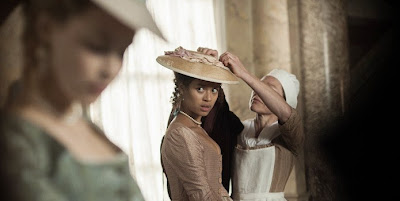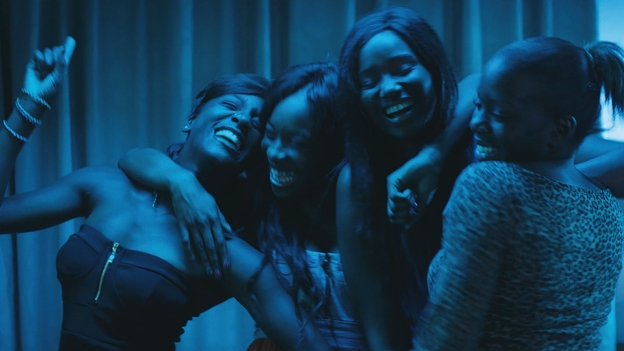The wonderful, glorious, poignant (look, just read my review so I can stop wasting adjectives on it, okay?) Girlhood is finally released in UK cinemas on the 8th of May. "Finally", many of you may say, "a coming of age film about a black teenage girl". And while there may be a severe lack of them, it's my duty to inform you that Girlhood is just one in a (admittedly very short) list of beautiful coming of age films about black girls and women. So if you're trying to cope with the wait until you can see Girlhood again, or love it so much that you're hungry for more, make sure to check out these incredible films.
It's hard to precisely name what makes Love and Basketball so great, aside from that fact that it, like all the very best rom-coms, takes genre conventions and either subverts or completely disregards them. The film tells the story of best friends turned lovers Monica and Quincy, who both aspire to be basketball stars. While initially the film may look as though it's about both characters, this is well and truly Monica's story, made evident by the absolutely brilliant and undeniably feminist final scene in the film.
Okay, so this may not be Spike's best, but it's certainly one of his better depictions of women. (She's Gotta Have It could've easily made this list, but there's that subplot towards the end of the film that just... no.) Loosely autobiographical and co-written with siblings Joie and Cinque, Crooklyn follows young Troy's trials and tribulations in Lee's native Brooklyn, dealing with her boisterous family. It's almost as nuanced as Lee's films about his male characters, which is refreshing, even if it is still a little lacking with the way it treats its female characters.
Our Song
Belle
Easily one of the worst advertised films of recent times, it's easy to believe that Belle is yet another Pride and Prejudice-esque romance, but with a twist... the main character is, shock horror.... BLACK. But to label Belle this is to massively undersell it, as it's actually a very beautiful and measured coming of age film that clearly respects and loves its protagonist. The film is also a subtle critique of white upper class British society who claim to have no links to slavery, and who are "tolerant" of non-white people to an extent. The film was also the breath through for the luminous angel in a human body that is Gugu Mbatha-Raw, so hopefully it'll be even more acclaimed in a few years when she's a huge star and people want to look back at how she "made it".
Flirting
Similarly to Love and Basketball, Flirting is more of a two-hander, and sadly focuses more on the male part of the film's couple, but it's a brilliant year nevertheless. A sequel to the under-seen (AKA I haven't seen it yet) The Year That My Voice Broke, Flirting follows nerdy teen Danny's miserable time at boarding school, where he ends up falling in love with an enigmatic new girl (played by Thandie Newton in one of her breakout roles) who goes to the all girls school across the lake. Every time I think about this film, it illicit the kind of "awww" that I usually save for thinking about dogs or Phillip Seymour Hoffman in Boogie Nights. It's subtle, sweet, and it allows its black female character to be more than just a girlfriend or a supporting character.
Just Another Girl on the IRT
Leslie Harris's debut (and at present, only) Sundance prize-winning film is similar to Our Song and Girlhood in that it accepts its protagonist, flaws, ill-advised decisions and all. Following the brilliantly mouthy Chantel, (in one of the film's best scenes, she continuously interrupts her history lesson to ask why they never study black history) a smart high schooler who dreams of going to college but has to juggle her difficult family, boys, and an unexpected pregnancy. The film is filled with a frenetic energy and Chantel leads us through her life, constantly breaking the fourth wall to ensure that she is in charge of telling her own story.
Pariah
The Body Beautiful
Last but not least is one of the trickiest films on this list to get a hold of, but if you're clever at traversing the internet or hunting down films then you won't be sorry. Ngozi Onwurah's short manages to cram multiple issues - mother/daughter relationships, body image, cancer, interracial relationships - into its short time span, as well as focusing on its authors racial and gendered identity and how this shapes her place in the world. Filled with stunning imagery and beautiful ideas about femininity, The Body Beautiful is definitely worth searching for.










